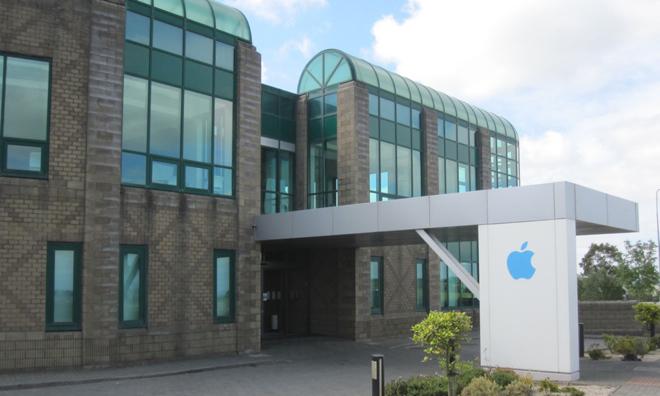Ireland's Finance Minister Michael Noonan said on Tuesday that he plans to push legislation to close a loophole in the country's corporate tax laws that allows companies like Apple, Google and Microsoft to avoid paying billions of dollars in taxes.
Noonan's promise to amend Ireland's tax code comes after calls for reform from U.S. Senators John McCain and Carl Levin, who in March said Ireland was a "tax haven" for multinational companies like Apple, reports Bloomberg.
"I will be bringing forward a change to ensure that Irish registered companies cannot be 'stateless' in terms of their place of tax residency," Noonan said. "Ireland wants to be part of the solution to this global tax challenge, not part of the problem."
The statement marks a change in course from a decision passed by the Irish parliament's finance committee in July, which voted to not question Apple and Google over their use of the country's tax code.
Apple's tax strategy leverages an Irish law that holds a company as a tax resident of the country from which it is managed, not incorporated. This means the usual 12.5 percent Irish tax rate is not applied to profit funneled to Apple's headquarters in Cork, which has long been the company's base of operations for the growing EMEA and Asia/Pacific regions. By the same token, the Irish subsidiary is well out of U.S. jurisdiction, meaning Apple is holding tens of billions of dollars in international earnings tax free.
What Noonan did not comment on is a tax avoidance strategy famously dubbed the "Double Irish with a Dutch Sandwich," which has been successfully employed by multiple domestic corporations to shelter income from high U.S. rates.
The process involves setting up an Irish subsidiary, such as Apple's headquarters in Cork, which is paid profits on products sold in the U.S. as royalties on patents owned by the company. These patents are assigned to an offshore entity located in a no-tax country, like the Caribbean, meaning Irish tax is not applicable to said income.
International profits are directed to a second subsidiary in Ireland, which takes advantage of Irish treaties with other European countries that lets companies pass money across borders tax free. The Netherlands is a state that participates in this arrangement and is a popular transit point, thus adding the "Dutch Sandwich" to the nickname. Once routed through the Netherlands, the money is sent back to the main subsidiary, where it can be freely moved to the Caribbean or Cayman Islands.
"We pay all the taxes we owe" - Apple CEO Tim Cook
In testimony given to the U.S. Senate Permanent Subcommittee on Investigations in May, Apple CEO Tim Cook made clear that his company uses no "tax gimmicks" to dodge federal bills, including strategies like the "Double Irish."
"Apple has real operations in real places with Apple employees selling real products to real customers," Cook said. "We pay all of the taxes we owe — every single dollar. We not only comply with the laws, but we comply with the spirit of the laws."
Because of the massive profits it generated over the past few years, Apple is perhaps the most visible corporation to hold an offshore cash pile. Congress claimed Apple cut some $74 billion off its tax bill between 2009 and 2012, but that money is simply, and legally, sitting in Ireland.
For its part, the SEC recently concluded an investigation of Apple's domestic and international tax practices, deciding only to suggest the company clarify that its "foreign" cash holdings are located in Ireland. No further action is planned.
 Mikey Campbell
Mikey Campbell







-m.jpg)






 Charles Martin
Charles Martin
 Christine McKee
Christine McKee
 Wesley Hilliard
Wesley Hilliard
 Malcolm Owen
Malcolm Owen
 Andrew Orr
Andrew Orr
 William Gallagher
William Gallagher
 Sponsored Content
Sponsored Content








41 Comments
Yeah - repatriate some of that money and help keep the Yanks away from THE CLIFF
Sounds like a great way to increase unemployment and decrease payroll taxes in Ireland!
No wonder Ireland needed to be bailed out when its economy was based on multinationals paying zero tax.
Yes, Irish politicians are just as corrupt as American ones.
No wonder Ireland needed to be bailed out when its economy was based on multinationals paying zero tax.
Every employee of those companies pays tax, though. So it's not an amazing point. Ireland fucked itself with the property and housing crisis. It was a tower of playing cards, a ticking bomb, with only time as the fuse.